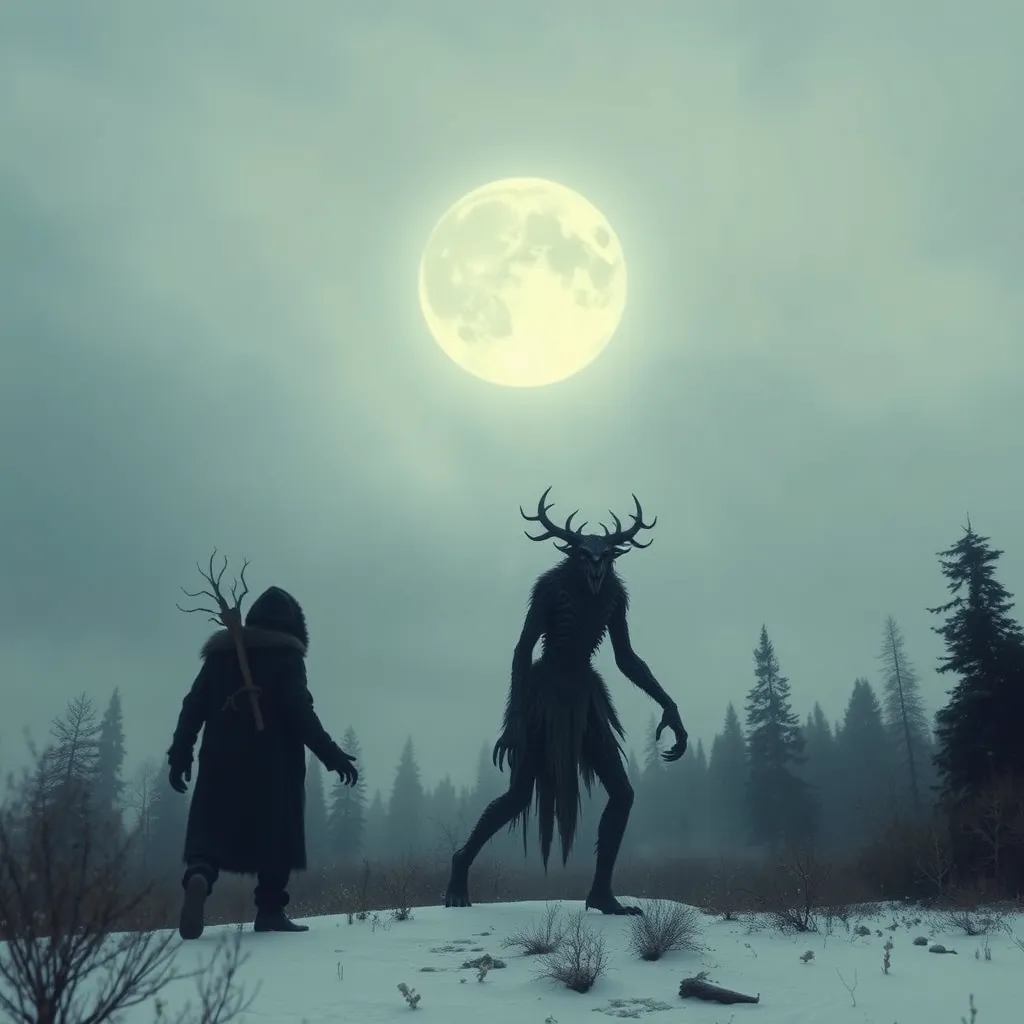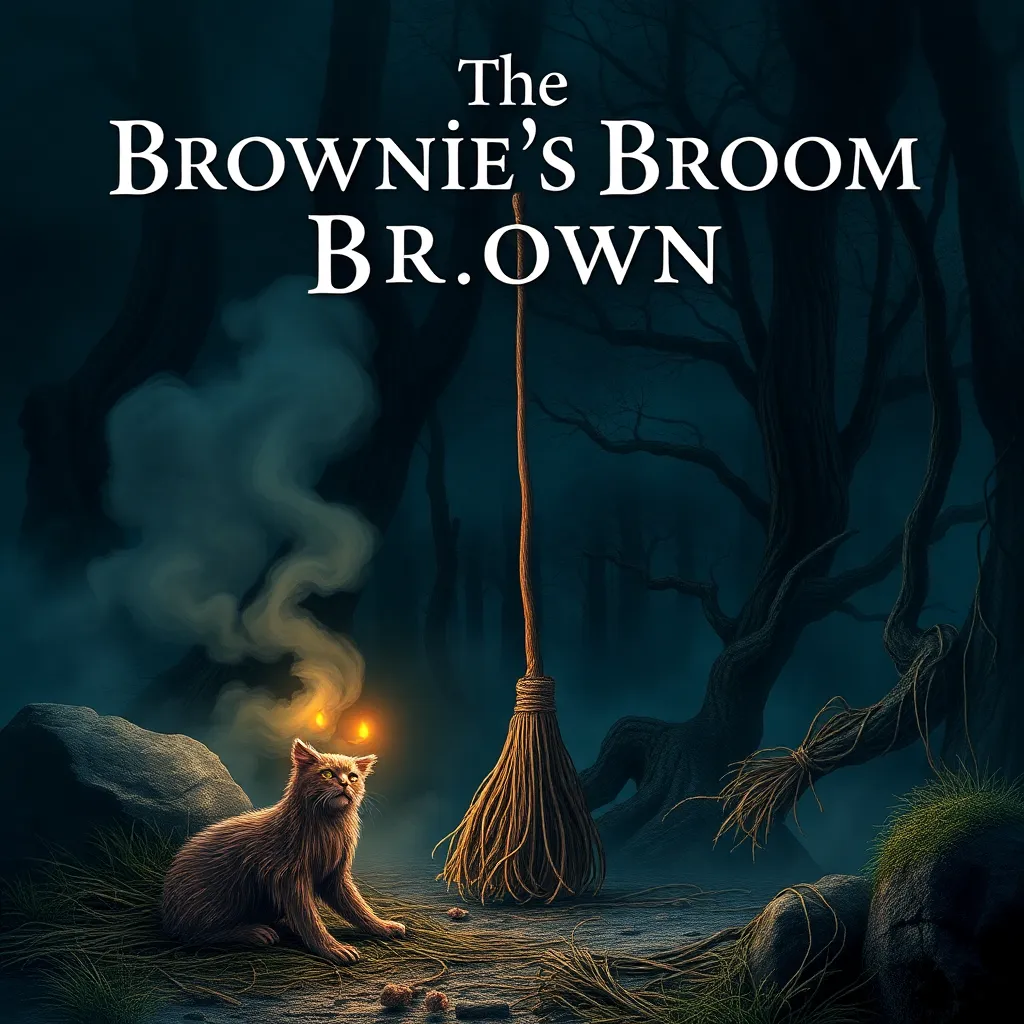The African Troll: Tales of the Forest Spirits and the Guardians of the Earth
I. Introduction
The concept of the African Troll is a fascinating aspect of African folklore that reveals the deep connection between culture, nature, and spirituality. These mythical beings, often associated with forests and nature, are not only intriguing figures but also serve as guardians of the earth, embodying the relationship between humans and the environment.
Forest spirits play a significant role in African mythology, often representing the unseen forces of nature, morality, and the ancestral wisdom of communities. This article aims to explore the origins, characteristics, cultural significance, and contemporary interpretations of the African troll, shedding light on their role as protectors of the earth and vital figures in storytelling.
II. The Origins of the African Troll
The history of the African troll is deeply rooted in the continent’s rich and diverse mythology. These figures can be traced back to ancient beliefs, where they were often seen as spirits of the forest, embodying both the benevolence and wrath of nature.
Across various cultures in Africa, the troll figure manifests in different forms, reflecting local beliefs and customs. For example:
- In some West African cultures, trolls are depicted as mischievous beings that protect the forest from human encroachment.
- In East African folklore, they may take on more benevolent roles, aiding lost travelers and providing guidance.
The oral tradition of storytelling has played a critical role in preserving these tales, allowing them to evolve over generations while maintaining their core themes of morality, respect for nature, and community values.
III. Characteristics of the African Troll
African trolls are often depicted with unique physical attributes that vary from region to region. Common characteristics include:
- Large, imposing figures, often covered in moss or bark, blending seamlessly with their forest surroundings.
- Brightly colored skin or luminescent features that reflect their magical origins.
- Facial expressions that range from mischievous to wise, illustrating their dual nature.
Beyond their physical appearance, trolls are known for specific behaviors and traits:
- Guardianship of the forest and its inhabitants, often punishing those who harm the environment.
- A propensity for trickery, teaching lessons to those who disrespect the natural world.
The symbolism of trolls in African culture is profound, representing the need for balance between humanity and nature. They remind communities of the consequences of their actions and the importance of respecting the earth.
IV. Guardians of the Earth: The Role of Trolls in Nature
The connection between trolls and environmental stewardship is a recurring theme in African folklore. These spirits are often portrayed as protectors of the land, emphasizing the relationship between humans and their natural surroundings.
Many myths highlight the importance of protecting natural resources:
- Stories of trolls punishing greed, where individuals who exploit forests or wildlife face dire consequences.
- Tales of cooperation between trolls and humans, promoting sustainable practices that honor the earth.
This balance between humans and nature is crucial in folklore, as it underscores the belief that humanity is a part of nature, not separate from it. Trolls serve as a reminder of the need for respect and harmony in our interactions with the environment.
V. Tales and Legends Featuring African Trolls
Numerous stories featuring African trolls have captivated audiences for generations. Some notable tales include:
- The Tale of the Lost Traveler: A story about a traveler who, lost in the forest, encounters a troll who teaches him the importance of humility and respect for nature.
- The Mischievous Trickster: A tale where a troll plays tricks on greedy hunters, ultimately leading them to learn the value of conservation and gratitude.
These stories often convey important themes and morals, such as:
- The necessity of living in harmony with nature.
- The dangers of greed and exploitation.
- The value of community and cooperation.
The impact of these tales on community values and beliefs is significant, as they instill a sense of responsibility toward the environment and foster a deeper understanding of cultural heritage.
VI. Modern Interpretations of Trolls in African Culture
In recent years, there has been a resurgence of interest in African folklore, including the concept of trolls. This revival is evident in contemporary literature, art, and media.
Modern interpretations include:
- Books and stories that reimagine traditional tales, making them accessible to younger generations.
- Artworks that depict trolls in various forms, celebrating their cultural significance.
- Films and documentaries that explore African folklore and its relevance in today’s society.
This resurgence not only honors traditional stories but also brings awareness to the environmental issues faced by many African communities today.
VII. The Global Influence of African Trolls
The influence of African trolls extends beyond the continent, contributing to global storytelling traditions. When compared with trolls in other cultures, such as European folklore, several similarities and differences emerge:
- Like their European counterparts, African trolls often embody a dual nature of benevolence and mischief.
- However, African trolls are more closely tied to nature and environmental themes, reflecting the deep connection many African cultures have with their land.
The role of African trolls in global storytelling highlights the importance of cultural exchange and adaptation, allowing these rich narratives to resonate with diverse audiences worldwide.
VIII. Conclusion
Preserving folklore such as the tales of African trolls is crucial in maintaining cultural identity and heritage. These stories not only entertain but also educate about the importance of environmental stewardship and community values.
As we navigate the challenges of modern life, the relevance of African trolls remains significant, reminding us of our responsibility to protect the earth and respect our cultural roots. We encourage cultural appreciation and environmental awareness, embracing the lessons learned from these timeless tales.




